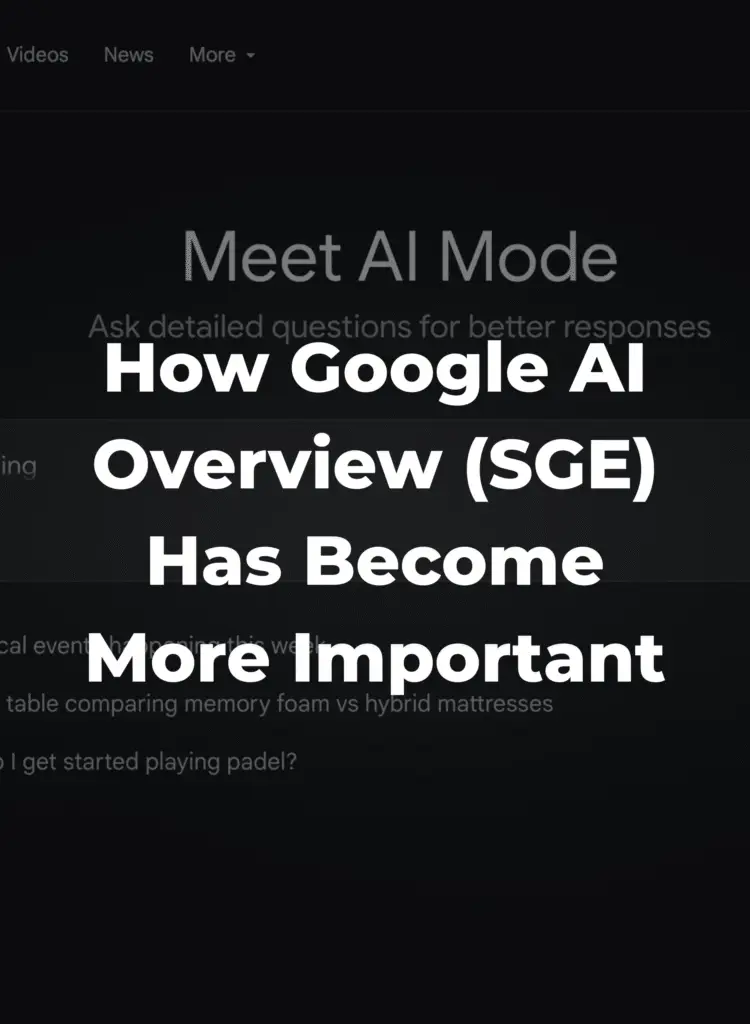Discover Generative Engine Optimisation (GEO) and how AI SEO can boost your Malaysian SME’s website traffic. Learn practical strategies for content, technical SEO, and local visibility.
The Evolving Search Landscape and Generative AI
The digital world is undergoing a profound transformation, fundamentally altering how consumers discover businesses and information online. Traditional search, which primarily relied on matching keywords to website content, is rapidly evolving into a more sophisticated, AI-driven landscape. This shift means that simply ranking high for specific keywords is no longer the sole determinant of online visibility; a deeper understanding of user intent and the ability to provide direct, comprehensive answers are becoming paramount.
At the forefront of this change is Generative Artificial Intelligence (AI). This advanced technology enables search engines to move beyond simple keyword dependency, allowing them to understand the context of queries, deliver nuanced answers, and engage with users in a conversational manner. Instead of merely presenting a list of links, AI-powered search can generate direct answers, provide detailed insights, or even offer tailored recommendations based on a user’s unique input. This represents a fundamental paradigm shift in Search Engine Optimisation (SEO). The core objective has moved from optimizing content to attract clicks to a website to ensuring that content is authoritative and structured in a way that it can be directly sourced and cited by AI models. This transformation requires businesses to adopt a “citation-worthy” mindset, where the goal is to be the definitive answer provider within the search interface itself.
For Small and Medium-sized Enterprises (SMEs) in Malaysia, understanding and adapting to this evolving search environment is not merely an option; it is becoming an urgent necessity for maintaining and expanding their online presence. The emergence of AI Overviews, which provide direct answers on the Search Engine Results Page (SERP), has given rise to the “zero-click” phenomenon. This means users often find the information they need directly within the AI-generated summary, eliminating the need to click through to a website. Reports indicate that websites featured in AI Overviews have experienced significant drops in organic clicks, with some studies showing as much as a 55% reduction, and a staggering 65% of global searches now concluding without a single click. This trend is further supported by observations of Click-Through Rate (CTR) declines ranging from 15% to 37%, as AI Overviews frequently push traditional organic results far down the page, sometimes requiring multiple scrolls on mobile devices to even see the first organic link. For SMEs, who often rely heavily on organic traffic for customer acquisition, this development poses a significant challenge to their traditional traffic models. It underscores the critical need for a proactive shift in strategy, where visibility is increasingly defined by whether a business’s content is cited within the AI overview, rather than its position in a list of links.
What is Generative Engine Optimisation (GEO)?
Definition Of GEO
Generative Engine Optimisation (GEO) represents an innovative approach to digital visibility that harnesses Artificial Intelligence to create and optimize content. Its primary aim is to ensure that a business’s online material is not only discoverable by AI-driven search engines but also precisely understood and directly cited by conversational AI models. This goes beyond traditional SEO’s focus on keyword matching to encompass the nuances of AI interpretation.
How GEO Leverages AI
GEO fundamentally relies on AI to generate content that is inherently optimized for search engines. AI algorithms possess the capacity to analyze vast datasets, identify emerging trends, and produce content with remarkable efficiency. This capability is particularly advantageous for businesses aiming to maintain a consistent and fresh content schedule without overburdening their internal resources. AI tools can assist in various stages of content creation, including brainstorming ideas, drafting outlines, crafting compelling introductions, and generating answers for Frequently Asked Questions (FAQs), thereby significantly accelerating the content pipeline.
Comparison: GEO vs. Traditional SEO
Understanding GEO requires a clear distinction from traditional SEO, while also recognizing their interconnectedness.
Traditional SEO: This approach has historically relied on manual keyword research, the painstaking creation of content, and the strategic acquisition of backlinks. Its core objective is to achieve high rankings for web pages in Search Engine Results Pages (SERPs), encouraging users to click through to the website. This process typically demands substantial human input and effort.
- Generative Engine Optimisation (GEO): In contrast, GEO leverages AI to generate content specifically designed for AI-driven search environments. The emphasis shifts towards understanding contextual meaning and providing direct, nuanced answers to user queries. The ultimate goal is no longer solely to secure clicks, but to become a trusted, authoritative source that AI models will reference and summarize in their direct responses.
It is important to recognize that GEO is not a complete overhaul or replacement for traditional SEO; rather, it is an evolution and a crucial complement. The foundational principles of strong traditional SEO—such as the creation of high-quality, original content, a well-optimized website structure, and the cultivation of genuine backlinks (often associated with White Hat SEO practices)—remain indispensable for achieving success in the GEO landscape.
The fundamental distinction between GEO and traditional SEO lies in the desired output and the nature of user interaction they aim to achieve. Traditional SEO primarily targets website clicks, whereas GEO focuses on generating citations and direct answers within the search interface. This means that the metric of success has shifted from the Click-Through Rate (CTR) of a traditional SERP link to the prominence of a business as an authoritative source within an AI-generated summary. Consequently, the content strategy transforms from one designed to “lure clicks” to one focused on “providing definitive answers” that satisfy the user’s query directly within the search experience.
However, the reliance on AI for content generation within GEO introduces inherent challenges related to quality control. AI-generated content can sometimes lack the nuance and depth typically found in human-created material, potentially resulting in generic or superficial articles. There are also risks associated with AI’s propensity to “hallucinate,” meaning it can produce incomplete or inaccurate information, and the potential for unintentional plagiarism due to its training on existing data. Therefore, simply copying and pasting content from AI chatbots without human oversight is strongly discouraged. While AI can efficiently generate content, human expertise remains indispensable for ensuring accuracy, originality, adherence to E-E-A-T (Experience, Expertise, Authoritativeness, Trustworthiness) principles, and the infusion of a unique brand voice. This critical human review mitigates the drawbacks of superficiality and generic tone often associated with raw AI output. The role of the human shifts from being the primary content creator to becoming a vital editor and strategic overseer.
Ready To Elevate Your Online Presence?
Navigating the digital landscape can be complex, but partnering with the right SEO and digital marketing consultant ensures your strategies align with your business objectives. Ready to elevate your online presence?
Contact us today to discuss the perfect consultant match for your Malaysian business.




